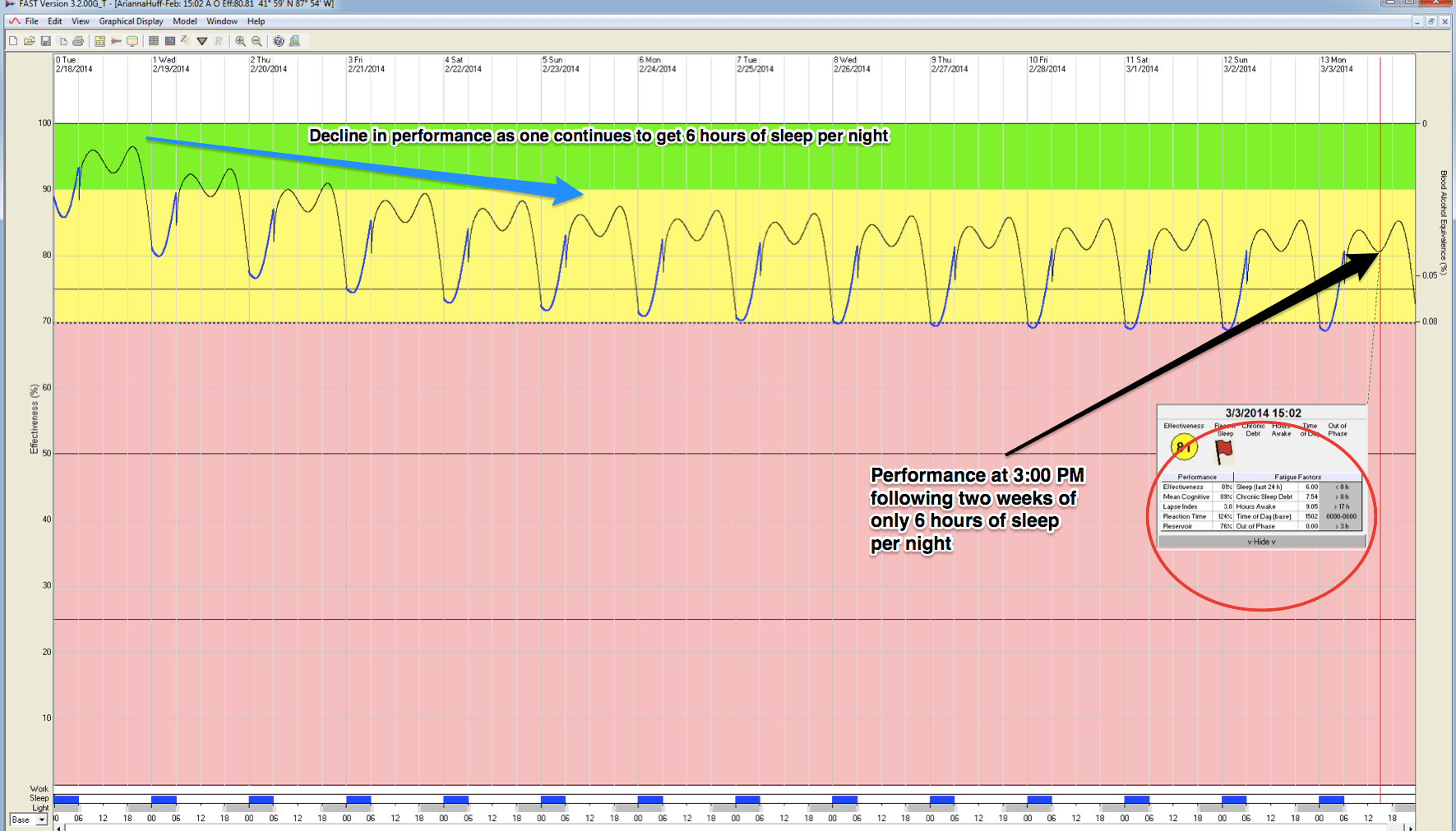The new year is quickly approaching and while many of you may have resolutions to improve your health and performance – by working out more or eating healthier – chances are you might be starting off 2014 with a bit of holiday-induced sleep debt. Even if you have spent the holidays getting your required 7-9 hours of sleep, just one late night (a New Year’s Eve party, perhaps) could impact your performance for as long as a week.
While the effects of sleep deprivation on fatigue and performance will be influenced by a number of individual factors, our Fatigue Avoidance Scheduling Tool (FAST) can demonstrate the effect of going to bed at 3 AM and waking up at 7:30 AM, on a previously well-rested person. The chart shows that it will take this individual six nights to recover fully to 100%; If you’re a professional athlete with a game in the first week of 2014, even these small reductions in reaction time could impact your ability to perform your best.

How do you get back on track for 2014? If your new year is going to start out something like the one in our example, we recommend not performing any safety sensitive tasks on new year’s day and take care for the rest of the week to bank an additional hour or two of sleep every night until you are recovered.
If you are making health a priority for 2014, include proper sleep management in your new year’s resolutions. Happy New Year’s from the team at Fatigue Science!



